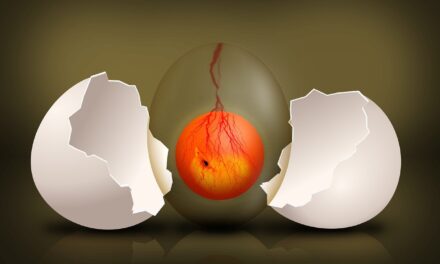Navigating the golden years of life requires more than just routine care; it necessitates a strategic approach to nutrition that emphasizes the importance of vitamins in sustaining health and vitality. As we age, our bodies undergo various changes that can affect how we process and utilize nutrients, making a vitamin-rich diet crucial for those over 50. Such a diet not only supports overall well-being but also plays a key role in preventing age-related diseases, enhancing cognitive function, and maintaining bone and cardiovascular health.
This article explores the significance of integrating a variety of vitamins into the daily diets of individuals over 50. By focusing on nutrient-dense foods and understanding the role of specific vitamins, seniors can effectively tailor their eating habits to meet their changing nutritional needs. We will delve into which vitamins are particularly important during this stage of life and provide practical tips for incorporating these nutrients into everyday meals.
Join us as we highlight the top vitamins needed for those over 50, backed by scientific research and expert advice. Whether you’re looking to boost your energy levels, protect your heart, or fortify your bones, a vitamin-rich diet can be your gateway to a healthier and more vibrant lifestyle in the later years.
Continuing from the introduction, let’s delve deeper into the specific vitamins that are crucial for individuals over 50, explaining their benefits, sources, and how to integrate them effectively into daily diets.
Vital Vitamins for Maintaining Health After 50
As we age, our nutritional needs change, and certain vitamins become particularly important to counteract the natural decline in physiological functions and increased nutritional demands. Here’s a guide to essential vitamins for those over 50 and how to ensure adequate intake.
1. Vitamin D: The Sunshine Vitamin
Vitamin D is crucial for bone health as it helps the body absorb calcium. It is also important for immune function, brain health, and protecting against inflammation. Many seniors are at risk of Vitamin D deficiency due to reduced skin efficiency to synthesize it from sunlight and limited outdoor exposure.
– Sources: Fatty fish (like salmon and mackerel), fortified foods (such as milk and cereal), and sunlight.
– Health Tip: Consider supplementation, especially in the winter months, after consulting with a healthcare provider.
2. Vitamin B12: Essential for Nerve and Blood Health
Vitamin B12 is vital for maintaining healthy nerve cells and producing DNA and RNA. It’s also crucial for the production of red blood cells. Absorption decreases with age due to changes in stomach acidity.
– Sources: Lean meats, fish, poultry, eggs, dairy products, and fortified cereals.
– Health Tip: Older adults may need to consume more fortified foods or use supplements if they have difficulty absorbing Vitamin B12 from food.
3. Vitamin C: Antioxidant Protection
Vitamin C is a powerful antioxidant that helps protect cells from damage, aids in the healing of wounds, and enhances the immune system. It also helps in the absorption of iron from plant-based foods.
– Sources: Citrus fruits, strawberries, bell peppers, broccoli, and Brussels sprouts.
– Health Tip: Include a variety of fruits and vegetables in your diet daily to ensure sufficient Vitamin C intake.
4. Vitamin E: Cellular Health
Vitamin E is another potent antioxidant important for immune function and skin health. It helps to protect cells from oxidative stress and is important for heart health.
– Sources: Nuts, seeds, vegetable oils, and green leafy vegetables.
– Health Tip: Use a small amount of vegetable oil in cooking and dress salads with nuts and seeds for an added Vitamin E boost.
5. Vitamin K: For Bone and Blood Health
Vitamin K is essential for blood clotting and bone health. It helps in the production of proteins for healthy bones and tissues and the blood clotting process.
– Sources: Leafy green vegetables, vegetable oils, and fish.
– Health Tip: Incorporate a serving of leafy greens daily, such as kale or spinach, to enhance your Vitamin K intake.
Implementing a Vitamin-Rich Diet
Adopting a vitamin-rich diet involves more than just eating a variety of foods. It’s about making informed choices and creating meal plans that cater to the increased nutritional needs of the over 50s.
– Diverse Diet: Aim for a colorful plate with a variety of vegetables, fruits, whole grains, and lean proteins to cover a broad spectrum of vitamins.
– Regular Check-ups: Keep track of your vitamin levels with regular medical check-ups and adjust your diet as needed.
– Supplementation: Consider supplements based on medical advice, especially for vitamins that are difficult to obtain in sufficient amounts through diet alone.
Summary and Takeaways: A Proactive Approach to Nutrition After 50
For individuals over 50, a proactive approach to nutrition, focusing on vitamin-rich foods, can significantly impact health and vitality. This strategy supports not only physical health but also cognitive function and disease prevention.
– Stay Informed: Keep updated with the latest nutrition research tailored to your age group.
– Consult Professionals: Work with dietitians or nutritionists to tailor a diet that meets your specific health needs.
– Lifestyle Integration: Make dietary changes part of a broader lifestyle approach that includes physical activity and mental health care.






